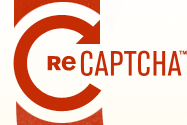This is part of my Series on Venture Capital.
In that we were speaking of "negative" or "anti-portfolios" in this earlier post, just have a look at Bessemer Venture Partners' vaunted list below and the sometimes hilarious explanations they give for having passed on the opportunity. They've been in business since 1911 and obviously have the sort of self-confidence, sense of humor and terrific track-record to put some of these mammoth misses up on their own site. How many VC's would advertise the fact that they turned down the likes of Google, FedEx, Ebay, PayPal, Apple, Cisco and others of this ilk? ( Of course, just have a gander at their top 50 exits and you'll see why they feel as if they can).
My favorite line is the pass they took on PayPal: "Rookie team, regulatory nightmare, and, 4 years later a $1.5billion acquisition by Ebay."
This one's pretty good too: "Whatever the reason, we would like to honor these companies -- our "anti-portfolio" -- whose phenomenal success inspires us in our ongoing endeavors to build growing businesses. Or, to put it another way: if we had invested in any of these companies, we might not still be working."
|

|
|
A123 Systems
In 2004, Northbridge and Sequoia offered Rob Chandra an opportunity to invest in the A123 Series C financing. Rob thought the world would have to freeze over before GM and Ford would seriously support battery powered cars. Sure enough, in 2008 Lehman collapsed, the world nearly froze over, GM restructured itself and emerged from bankruptcy with an appetite for building an electric car. A123 went public in 2009 with a $1.3 billion valuation.
|
|

|
|
Apollo Computer
(acquired by Hewlett Packard)
BVP's Felda Hardymon was offered a small position in the company's last private round, and waved it away: too small a position, he thought, at too high a price. In less than a year it was worth 17x.
|
|

|
|
Apple Computer
BVP had the opportunity to invest in pre-IPO secondary stock in Apple at a $60M valuation. BVP's Neill Brownstein called it "outrageously expensive."
|
|

|
|
Check Point
In 1994, Gil Schwed pitched his idea to BVP's David Cowan, who said that Gil would never get distribution in the US. The next year, Check Point got a huge Sun OEM deal and sold $25M of firewall software.
|
|

|
|
eBay
"Stamps? Coins? Comic books? You've GOT to be kidding," thought Cowan. "No-brainer pass."
|
|

|
|
Federal Express
Incredibly, BVP passed on Federal Express seven times.
|
|

|
|
Google
Cowan's college friend rented her garage to Sergey and Larry for their first year. In 1999 and 2000 she tried to introduce Cowan to "these two really smart Stanford students writing a search engine". Students? A new search engine? In the most important moment ever for Bessemer's anti-portfolio, Cowan asked her, "How can I get out of this house without going anywhere near your garage?"
|
|

|
|
Ikanos
Rob Chandra met these guys in 2000 at the start of the telecom meltdown, and remembers saying something like, "Rajesh, I like you a lot but do you really want to build a communications semiconductor business right now?" He looked at Rob in a sort of funny way and then raised money from Greylock, Sequoia and others. They are now running at a $60 million revenue run rate by focusing 90% of their effort on the telecom boom in China.
|
|

|
|
Intel
BVP's Pete Bancroft never quite settled on terms with Bob Noyce, who instead took venture financing from a guy named Arthur Rock.
|
|

|
|
Intuit
Along with every venture capitalist on Sand Hill Road, Neill Brownstein turned down Intuit founder Scott Cook. Scott managed to scrape together only $225K from friends, including HBS classmate and Sierra Ventures founder Peter Wendell, who personally invested $25K to get Scott off his back.
|
|

|
|
Lotus and Compaq
(formerly known as Gateway Computer)
Ben Rosen, one of the founders of Sevin Rosen, offered Felda Hardymon the chance to invest in both Lotus and Gateway Computer on the same day. Says Hardymon: "Lotus wasn't proven yet, and I was worried about the situation there. As for Gateway, I told him there was no real future in transportable computers since IBM could do it."
|
|

|
|
Paypal
David Cowan passed on the Series A round. Rookie team, regulatory nightmare, and, 4 years later, a $1.5 billion acquisition by eBay.
|
|

|
|
StrataCom
(acquired by Cisco)
Felda Hardymon: "[Sierra's] Pete Wendell asked if I'd like to look at Stratacom, which was doing a 'fast packet switch.' I gave him a blank stare."
|


















